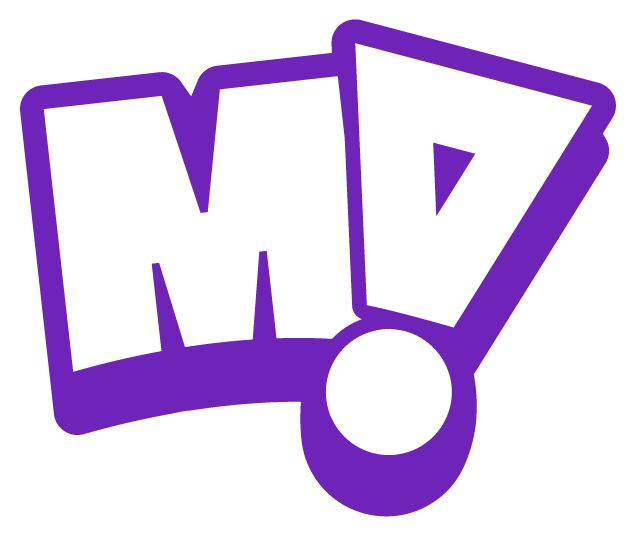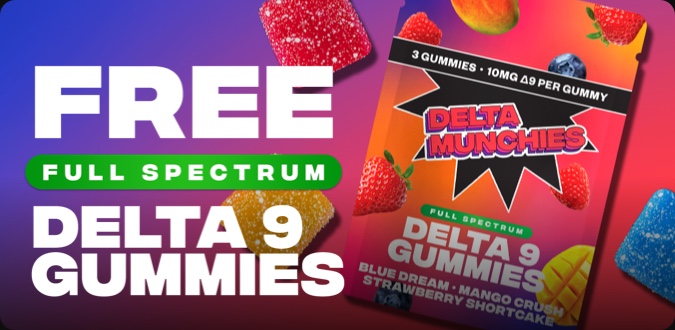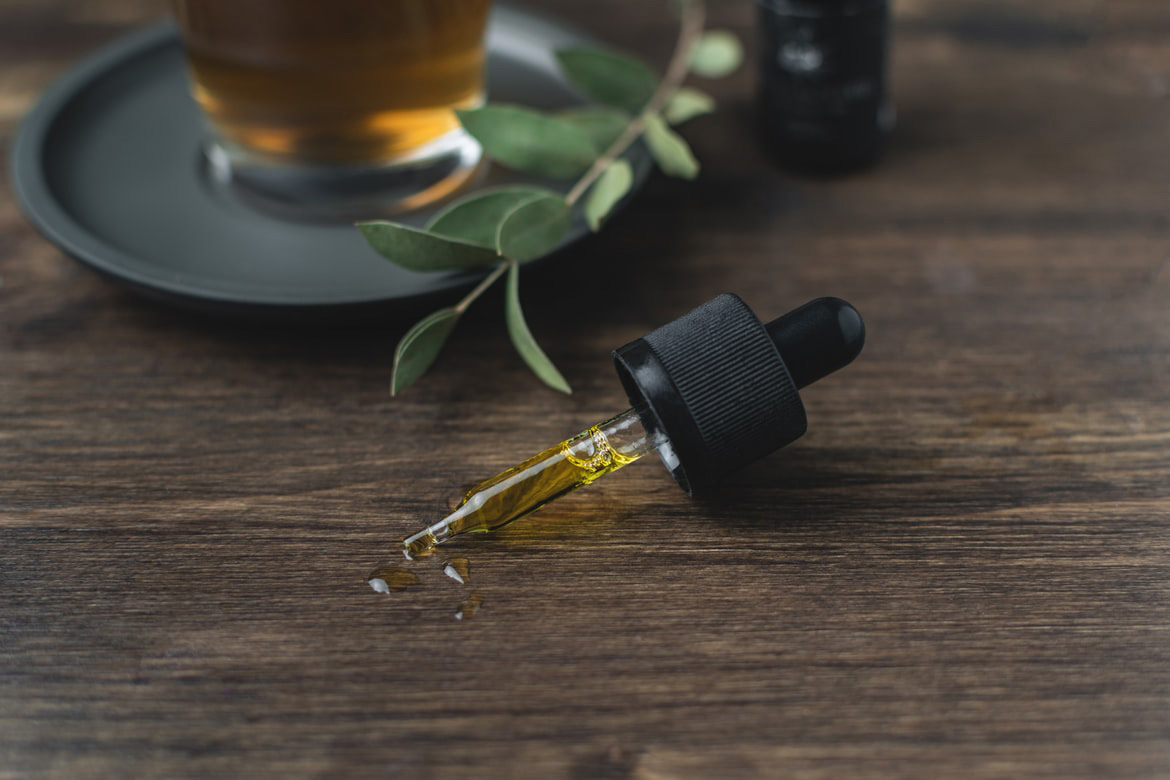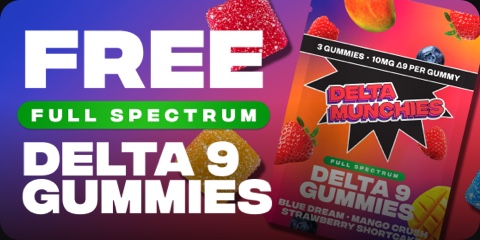Delta 8
Can You Use Delta-8 For Pain Relief?
Photo by Crystalweed Cannabis via Unsplash.com
The cannabis plant has been used in medicine and healing for thousands of years. THC, CBD, and other chemical compounds found in the hemp and marijuana plants have been harvested and cultivated in herbal medicine for millennia, even dating back to some of the earliest recorded civilizations in human history. Cannabis and its many cannabinoid compounds have shown a lot of potential promise in terms of things like pain relief.
Delta-8 THC, a close cannabinoid cousin to both delta-9 THC and CBD, is a quickly rising star within the cannabis world. In the last year alone, delta-8’s popularity has absolutely exploded. Everyone wants to get their hands on this incredible cannabis compound.
Along with product availability, consumers are also on the hunt for information regarding the potential medicinal benefits of delta-8. However, with reviews of delta-8 just beginning to emerge, it’s important to note that most of what is known about its effects is anecdotal and comes from personal user experiences.
Although the research on delta-8 is still ongoing, what’s been found so far makes delta-8 look very promising in terms of potential cannabis medicine. Boasting a long list of potential therapeutic benefits, many people have reported that in their experience, delta 8 for pain relief has been a great help.
**(Disclaimer: This article is not medical advice. It is based on anecdotal user experience alone. If you are thinking about incorporating cannabis (delta-8 THC, delta-9 THC, or CBD) into your medicinal routine, please consult a healthcare professional. Do not stop taking any prescribed medications without first consulting your doctor.)**
Delta Munchies has you covered for the best in class Delta 8 THC Tinctures. Check ’em out!
Contents
How Does THC Effect Pain Relief?
The human body naturally contains a system called the endocannabinoid system, or the ECS. The endocannabinoid system is made up of two different types of cannabinoid receptors, CB1 (or cannabinoid receptor type one) and CB2 (or cannabinoid receptor type two.) When you consume THC, it reacts with these two types of cannabinoid receptors to deliver different effects throughout the body.
Your CB1 receptors can be found in your central nervous system, while your CB2 receptors can be found in your immune system. Delta-8, as a form of THC, reacts with the CB1 receptors to interact with the central nervous system, which triggers the release of dopamine (commonly called the body’s “feel-good” chemical) in the brain. This process is what’s attributed to THC’s potential success when it comes to helping with pain relief.
How Does THC Compare to Opioids in Terms of Pain Relief?
Opioids are notoriously known for being relatively dangerous drugs. Prescription opioids are highly addictive, have a significant potential for overdose, and can come with a laundry list of adverse side effects. THC can be a less addictive, less dangerous, and great natural alternative to using opioids for pain relief.
Opioids are prescribed as pain medication for millions of people across the globe for a myriad of different painful ailments. Opioids are man-made substances that work with the central nervous system to block the production of norepinephrine, acting as a depressant for the central nervous system while dulling the sensitivity of the body’s pain receptors. Opioids work exceptionally well, which is why they are so popularly prescribed. But, unfortunately, they can also be extremely dangerous.
The CDC reported that, in 2020, the United States reached a record high in opioid overdoses at nearly 100,000 deaths. Many areas of the country are dealing with opioid crises running rampant in their local communities, making their local first responders and hospital staff no strangers to opioid OD’s.
Alternatively, there have been zero reported cases of any kind of marijuana overdose… ever. Not just in 2020, but ever. That’s a pretty impressive accomplishment if you ask us.
This doesn’t mean that THC is a cure-all or a miracle drug, but it has been commonly used as a markedly less dangerous replacement for opioids for many years. THC can potentially offer a safe, natural, and non-addictive alternative for individuals dealing with chronic pain and taking prescription pills every day.
**(Disclaimer: this is not medical advice. Please do not abruptly stop taking any prescription medication you’re taking, as that may be dangerous. If you’re looking to replace an opioid prescription with any kind of cannabis product, please consult your doctor.)**
Are There Risks and Side Effects to Using Delta-8 for Pain Management?
There are potential risks and side effects that come with any foreign substance that you put in your body. And even though cannabis is wonderful for the human body in many ways, it is not excluded from this rule.
While (thankfully) there have been no reported deaths directly connected to the use of marijuana, there have (unfortunately) been many user reports of bad weed experiences. In instances where too much THC has been consumed, users have reported:
-
Paranoia
-
Anxiety
-
Restlessness
-
Racing pulse
-
Laziness
-
Couch-lock (aka the feeling of being stuck in place)
Typically, this will happen most frequently with delta-9 THC. CBD does not deliver a psychoactive experience, and while it does depend on tolerance, you’d have to take a LOT of delta-8 to reach the same unsavory effects as you would from too much delta-9.
When talking about risks regarding cannabis, this doesn’t just stop at physical risks. The legality of cannabis in the United States remains in a grey area, making the risks to using certain cannabis products differ depending on which state you live in. Delta-8 is federally legal, but on a state-by-state basis, it’s a different story.
Currently, as of the writing of this article (November 2021), delta-8 THC is legal in the following states: Alabama, California, Florida, Georgia, Hawaii, Illinois, Indiana, Kansas, Maine, Maryland, Massachusetts, Minnesota, Missouri, New Hampshire, New Jersey, New Mexico, North Carolina, Ohio, Oklahoma, Oregon, Pennsylvania, South Carolina, South Dakota, Tennessee, Texas, Virginia, West Virginia, Washington, Wisconsin, Wyoming, and in Washington D.C.
Currently, as of the writing of this article (November 2021), delta-8 THC is illegal in the following states: Alaska, Arizona, Arkansas, Colorado, Connecticut, Delaware, Kentucky, Idaho, Iowa, Michigan, Mississippi, Montana, New York, North Dakota, Rhode Island, Utah, Vermont, and Washington.
What Makes Delta-8 Better Than CBD or Delta-9 for Pain Relief?
When it comes to the cannabis plant, it’s historically fallen into two different categories: medical marijuana and recreational marijuana. Some people want to use it for one and not the other; some people just want to get high, and others want the benefits of the cannabis plant without the psychoactive experience. That’s why different cannabinoids, strains, and consumption methods are so essential to have.
CBD is most well-known for its role in the medical side of the cannabis plant. It delivers all of the therapeutic effects without affecting your brain in any psychoactive way. For some people, this is perfect––but for others, CBD can leave something to be desired.
On the other side of the spectrum, delta-9 THC is known for delivering a strong physical and mental high. At times, it’s been described as anxiety-inducing. Because the high can be a bit too intense for some people, it can create feelings of anxiety, paranoia, extreme restlessness, and feelings of dissociation.
For those who are looking to reap more of the medicinal benefits with a less intense psychoactive experience, delta-8 comes in to fill that niche. Since delta-8 is still technically THC, it does deliver some psychoactive properties, just without the jittery side-effects that typically come with delta-9. This makes delta-8 the perfect cannabinoid for those who don’t really want to choose one or the other. Sitting right in the ‘goldilocks’ spot, delta-8 is the best of both worlds.
It’s also important to remember that cannabis as a whole affects every single person differently. What works for you may not work for others. Every single person has a unique biological and physiological makeup that will directly affect how they process cannabinoids.
Are There Alternatives to Herbal THC or Delta-8 THC?
If you’re looking into using cannabis as medicine, you’re probably looking to keep it as healthy as possible. This has led many people to look into other forms of cannabis consumption that don’t include smoking it. (While there are a ton of incredible health benefits that come with using cannabis, unfortunately, smoke inhalation is not one of them.)
Thankfully, there are plenty of ways to enjoy delta-8, THC, and CBD in forms that don’t include smoking. If you’re looking for a gentler alternative, you can try using:
-
Tinctures (or oil-based serums that are taken sublingually.)
-
Topical creams, lotions, and oils can be applied directly to the skin.
-
Edibles that are digested and metabolized through the stomach.
-
Vaporizers that reduce the amount of smoke produced by the bud.
Depending on your body, specific pain needs, and individual preference—it’s good to experiment with different methods of consumption to find the best delta 8 pain relief option that fits your personal needs. Everyone has a different relationship with THC. What works for one person may not work for another, and that’s okay! It’s good to take people’s anecdotal experience as advice, but always remember that ultimately, you have to listen to your body and create the routine that best works for you.
In Conclusion
So, does delta-8 help with pain relief? From most anecdotal research based on users’ personal experiences, there is positive evidence that delta-8 can potentially be a beneficial agent for pain relief.
Although it looks promising, it’s important to remember that research on delta-8 and the cannabis plant as a whole is still ongoing. The regulated cannabis industry is still relatively young. But with cannabis science rapidly expanding, we’re sure to see a lot of new discoveries in terms of medical marijuana, bringing in new ways that we can cultivate it to help improve the lives of countless people across the world.
**(Disclaimer reminder: This article is not medical advice. It is based on anecdotal user experience alone. If you are thinking about incorporating cannabis (delta-8 THC, delta-9 THC, or CBD) into your medicinal routine, please consult a healthcare professional. Do not stop taking any prescribed medications without first consulting your doctor.)**






